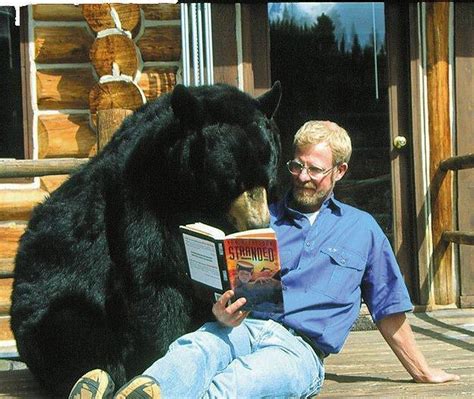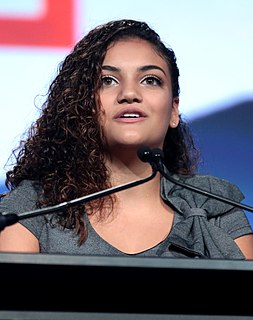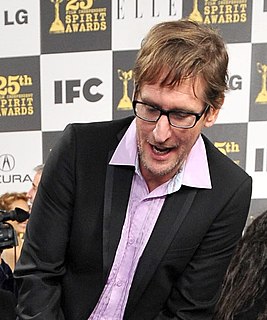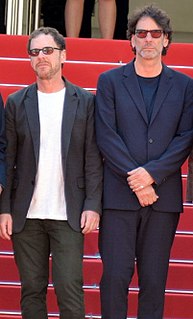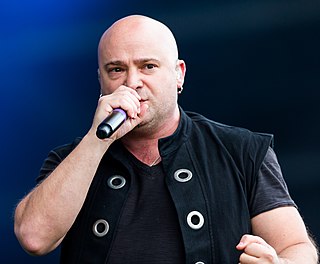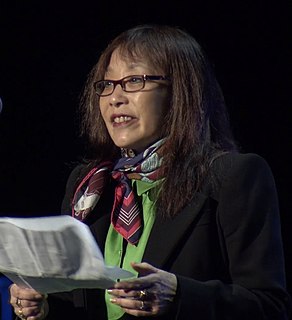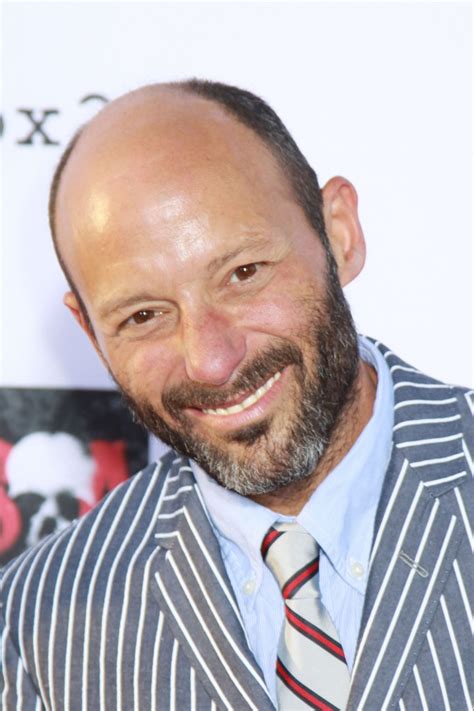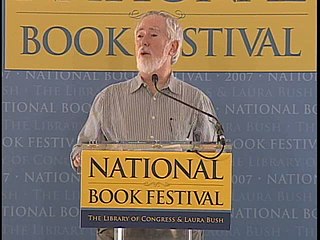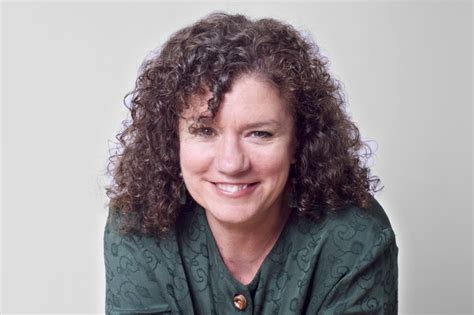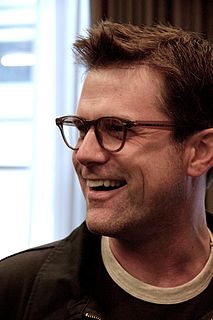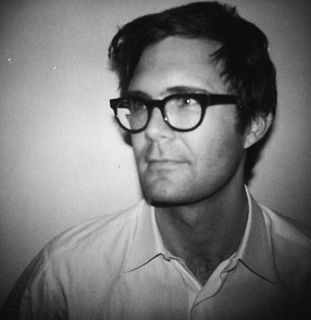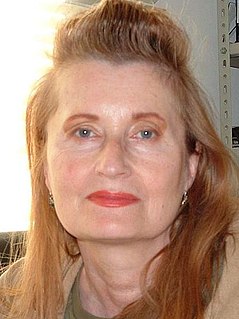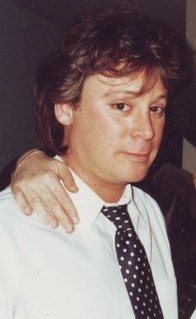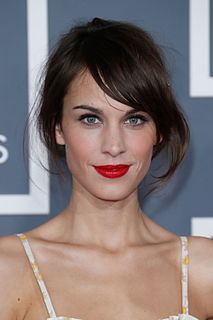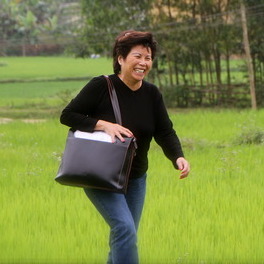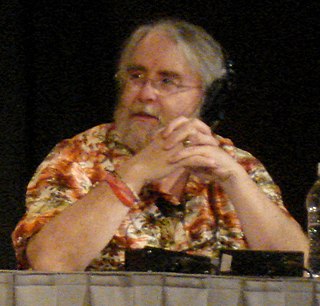Top 1200 Writing Nonfiction Quotes & Sayings - Page 18
Explore popular Writing Nonfiction quotes.
Last updated on April 20, 2025.
Even if your novel occurs in an unfamiliar setting in which all the customs and surroundings will seem strange to your reader, it's still better to start with action. The reason for this is simple. If the reader wanted an explanation of milieu, he would read nonfiction. He doesn't want information. He wants a story.
The story goes that every Jedi constructs his own lightsaber, and every penmonkey constructs his own pen. Meaning, we all find our own way through this crazy tangle of possibility. This isn't an art, a craft, a career, or an obsession that comes with easy answers and isn't given over to bullshit dichotomies. We do what we do in the way we do it and hope it's right. Read advice. Weigh it in your hand and determine its value. But at the end of the day - and at the start of it - what you should be doing is writing. Because thinking about writing and talking about writing just plain isn't writing.
What I'm really involved in when I'm writing is something that no one ever mentions when they see any play. Writing is like trying to make gunpowder out of chemicals. You have these words and sentences and the strange meanings and associations that are attached to the words and sentences, and you're somehow cooking these things all up so that they suddenly explode and have a powerful effect. That's what absorbs me from day to day in writing a play.
One of my favorite things, as a critic, was finding books by new writers who possessed a distinctive voice and vision, an inventive gift for storytelling. I also loved immersing myself in works of nonfiction that taught me something about the world, that made the past come alive or shed light on hidden corners of history or the news.
Writing a film - more precisely, adapting a book into a film - is basically a relentless series of compromises. The skill, the "art," is to make those compromises both artistically valid and essentially your own. . . . It has been said before but is worth reiterating: writing a novel is like swimming in the sea; writing a film is like swimming in the bath.
I've quit writing screenplay [adaptations]. It's too much work. I don't look at writing a novel as work, because I only have to please myself. I have a good time sitting here by myself, thinking up situations and characters, getting them to talk - it's so satisfying. But screenwriting's different. You might think you're writing for yourself, but there are too many other people to please.
Writing is like wrestling; you are wrestling with ideas and with the story. There is a lot of energy required. At the same time, it is exciting. So it is both difficult and easy. What you must accept is that your life is not going to be the same while you are writing. I have said in the kind of exaggerated manner of writers and prophets that writing, for me, is like receiving a term of imprisonment-you know that's what you're in for, for whatever time it takes.
I didn’t like it [computer] when I first began using it. Where it’s helped me a lot is in nonfiction which is a kind of different process. You’ve got research, you’ve got your notes, You can block out what you want to work on for the next 10 pages and put it in another file, and then you can kind of carve it into shape
I wanted to be a director first to protect my writing. I'm a playwright and you don't need to protect your writing when you're in the theater because everyone's there to protect the writing. When I had an idea for a film that I really cared about as my own, I wanted to direct it, and then I immediately became interested in directing in and of itself because it's such a deep art. You suddenly have all these tools at your disposal to tell the story.
This is one of the ways fiction is more liberating than nonfiction - I don't have to be so concerned with fact. I had the paradigm of certain people in my head who became my characters, but I never considered these people to be from a "certain sector of society," unless we agree that we're all from certain sectors of society.
Writing is so... I don't know, it's such a practice, and I feel very unpracticed in it, because I'm not doing it every day. And I really need to do it every day. In other words, you spend all this time writing a movie, and then you stop, and then you're shooting the movie, and then you're cutting, and a year and a half goes by, because in the editing room, you're not writing.
I prefer reading novels. Short stories are too much like daggers. And now that I'm done with my collection I'm more interested in different forms of writing and other kinds of narrative art. I'm working on a screenplay. But when I was working on Eileen, I definitely felt like I was taking a piss. Like, here I am, typing on my computer, writing the "novel." It wasn't that it was insincere, but there was a kind of farcical feeling I had when I was writing.
The written word is weak. Many people prefer life to it. Life gets your blood going, & it smells good. Writing is mere writing, literature is mere. It appeals only to the subtlest senses—the imagination’s vision, & the imagination’s hearing—& the moral sense, & the intellect. This writing that you do, that so thrills you, that so rocks & exhilarates you, as if you were dancing next to the band, is barely audible to anyone else.
A journalist gathers information for a media outlet that disseminates the information through a broadly defined 'medium' - including newspaper, nonfiction book, wire service, magazine, news Web site, television, radio or motion picture - for public use. This broad definition covers every form of legitimate journalism.
A great read; an exciting, frightening account of organized crime today. But like all important works of nonfiction, it goes further… This book is must reading for anyone with an interest in the enduring effects of the Vietnam War, the subject of crime in our streets, and the issue of personal responsibility in a harsh, chaotic world.
Simply put, meta-writing is writing that is self-conscious, self-reflective, and aware of itself as an artifice. The writer is aware she's writing, and she's aware there's a reader, which goes all the way back to Montaigne's often-used address "dear reader," or his brief introduction to Essais: "To the Reader." It can be done in a myriad of ways.
Ever since high school I've been writing in a spiral notebook, in pencil. Everything looks too polished on a computer when you start writing, and I can't really see it. I feel like the words are much more naked in pencil, on a notebook. I feel that my brain works differently, and words come out differently, if I have a pencil in my hand, rather than if I have a keyboard. I tend to add more in the margins. I tend to elongate the sentences as I'm writing and editing, and there is just something about the feeling of writing longhand that I really love.

